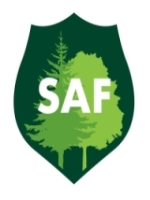General Information
The Forest Management Technology degree is designed for persons seeking employment in various forestry occupations. The program is designed with the fundamental philosophy of delivering classroom instruction coupled with hands-on experiences. Students use industry-standard equipment and gain practical experience through course labs and required summer internship.
The program supports forestry and forest-related industries that are vital to the economy of Virginia and across the country. The conservation use of these resources requires knowledgeable and dedicated forest technicians trained in forest management, protection, timber harvesting, and forest products.
Graduates of the program are sought after and are well qualified for positions in forestry, urban tree care, and forest products.
Award: Associate of Applied Science
Program Head: Richard (Scott) Reigel, rreigel@mgcc.edu, (540) 863-2894
Length: Five Semesters (Two years of full-time study, including 1 summer session)
Accreditation
The Forest Management Technology program has the distinction of being accredited by the Society of American Foresters.

Additional Information
For more information, please contact Student Services at 540-863-2820 or Richard (Scott) Reigel, Program Head, at rreigel@mgcc.edu.
Related Degrees